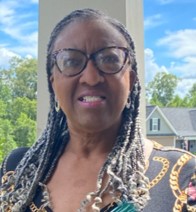Home > The Value of Collaboration
By Janice Williams, Ph.D.
Reflecting on some of the events over the last year that highlight prevention, in May, 2022, for the 18th Annual SAMHSA Prevention Week activities, Assistant Secretary for Mental Health and Substance Use, Dr. Miriam Delphin-Rittmon, shared opening remarks that highlighted the HOPE framework that denotes SAMHSA's system of supports and services for Health, Opportunity, Potential, and Equity (HOPE). This framework recognizes that families and communities should experience "the ability to reach their full potential with equitable strategies that build strengths and include voices" (www.samhsa.gov). The importance of "voice" and inclusivity has always been an integral part of prevention programs, policies, and practices. As preventionologists carry the "inclusive torch", voices of change are recognized as well as other professions are welcomed to gain an understanding of what it means to provide prevention services through the lens of substance misuse and abuse.
For state systems, SAMHSA has afforded funding to sustain prevention professionals within the behavioral health system to promote effective strategies. These professionals lead the charge to collaborate with other professionals in community organizations in order to encourage strategic prevention partnerships within federal, state, and local structures. Nationally, the National Prevention Network (NPN) made up of state substance use disorder (SUD) licensed/credentialed prevention professionals, are recognized by SAMHSA, in addition to other professionals supported by federal and state agencies. The Certified Health Education Specialist (CHES), primarily working in the public health arena, is among many who are working in communities to ensure the message of prevention and maintaining good health is shared. Community navigators or community health workers (www.mhanational.org or the institute for public health innovation) are also recognized groups that address a plethora of health conditions and coordinate services for multi sector teams. The HOPE framework, the Strategic Prevention Framework (SPF), harm reduction model, Overdose To Action (OD2A) strategies, justice best practices, and all other approaches can only be successful with a concerted collaborative effort. We all must accept the challenge of reaching out to these and any other professionals to learn more about the work they do to help build community structures that can be sustained. Collaboration is integral and achieved through intimate work with all professions doing the work of prevention regardless of payment, whatever grant they represent, or whatever local condition is addressed.
This past January 2023, SAMHSA again sponsored Prevention Day as a pre-conference to the 33rd Annual CADCA National Leadership Forum held in Washington DC. Prevention Day historically brings together (whether virtual or in person) prevention professionals, researchers, advocates, youth, community leaders, policy makers, and others to learn about innovative approaches, and to "collaborate" on what's working in communities. The CADCA forum (www.cadca.org) is the premier gathering for community coalitions and has proven to be successful with disseminating appropriate resources and evidence-based research to add to the "collaborative toolbox". In addition, OJJDP sponsored its 13th Annual National Mentoring Summit in January, focusing on the importance of mentoring in this prevention space.
Take advantage of these opportunities. Bringing together all professionals representing all sectors is crucial. Collaboration at all levels is imperative if we are to achieve successful outcomes for prevention. It should not be just something to check the box but should be our "mantra.” As we march into 2023 with our "tool kits" in our backpacks, let us all take advantage of what prevention services have to offer, what can be achieved, and work to continue to carry that "inclusive torch" for collaboration!

Janice Williams,Ph.D./ Retired
CEO, Ph.D. Consultants, LLC